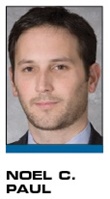Insurance against injuries has rapidly become a vital tool for NFL players looking to protect their financial security, and for NFL teams hoping to safeguard their investments. With NFL free agency now in full swing, agents and general managers are looking for more creative ways to use insurance to overcome negotiation roadblocks and structure marquee contracts.
The growing interest from players and teams is understandable. Both sides are becoming more conscious of the risks of the sport. The NFL recently reported, for example, that the number of diagnosed concussions in 2015 reached a four-year high. And retired players, like former Pittsburgh Steelers wide receiver Antwaan Randle El, continue to disclose the physical and mental toll of an NFL career. Meanwhile, unlike the other major professional leagues, guaranteed contracts in the NFL remain uncommon, with contracts guaranteeing against injury rarely extending beyond two years.
Perhaps more than any other professional sport, therefore, insurance is being looked to by NFL players and teams to provide an extra layer of financial security.
 |
Loss-of-value coverage might have assisted former Green Bay TE Jermichael Finley after an injury.
Photo by: GETTY IMAGES
|
They typically rely on two basic types of insurance: disability coverage and loss-of-value coverage. Disability coverage insures against an injury or illness that ends a player’s career. It is designed to provide a sufficient payment to compensate the player for missing out on his next contract. Some disability policies even cover the player’s inability to work after football. Loss-of-value coverage, meanwhile, is triggered when a player is able to obtain a professional contract but earns less than expected because of an injury. The policies generally provide between $5 million and $10 million in coverage and cost about $10,000 in premium per $1 million in coverage.
Players have found creative uses for the insurance. Last June, Seattle Seahawks quarterback Russell Wilson confirmed that he had purchased insurance to protect against injury during the fourth and final year of his rookie contract. As Wilson had less than $3 million in career earnings at that point, the insurance provided important financial protection in case he entered the next season without a new deal. Having the backstop of coverage (reportedly worth several million) likely helped Wilson maintain a strong position in negotiating his next contract. He ultimately signed a deal with the Seahawks worth more than $87 million, with $60 million guaranteed.
For agents who are considering whether to buy insurance for their clients, timing is key. Coverage is particularly important in the final year of a player’s first contract. By that time, many young players have played well enough to earn a new contract, and insurers have enough information to project their future earnings. And because most rookie contracts (like Wilson’s) pay out relatively little, insuring the next contract is vital.
Insurance is less important to established stars who have earned many years of big salary payments and endorsement money. As Wilson was negotiating with the Seahawks, for example, New York Giants’ quarterback Eli Manning disclosed that he was going into the final year of his contract without coverage. His decision was understandable. Unlike Wilson, by last summer Manning had more than $100 million in career earnings and was listed by Forbes as one of the world’s richest athletes.
Agents also need to be sure to buy the right kind of coverage. While disability insurance covers the worst-case scenario of a career-ending injury, such injuries are rare and proving disability can be challenging. It is not uncommon for players to sustain serious injuries that diminish their market value but that do not prevent them from continuing to play altogether. In such circumstances, loss-of-value coverage would theoretically cover the difference in what the player expected to earn before the injury compared to what the player actually receives.
Former Green Bay Packers tight end Jermichael Finley likely would have qualified for loss-of-value coverage after coming off of a season-ending neck injury in 2013. According to Finley’s agent at the time, the free agent was cleared to play by his physician after successful surgery. Finley reportedly did not have loss-of-value coverage, however, which would have paid the difference between the contract he was expected to receive before his injury as one of the top tight end free agents in the NFL and the relatively small amount he would earn if he had played coming off of his injury in 2014. And because of the physician’s statement that Finley was clear to play, it created an issue of whether he was eligible to collect his $10 million in disability coverage.
 |
KAEPERNICK
|
But insurance is not only a consideration for players. It also can be used to benefit NFL teams. In the summer of 2014, the San Francisco 49ers agreed to a six-year, $126 million contract with quarterback Colin Kaepernick. While most of the contract is not guaranteed if Kaepernick is cut from the team for performance issues, a surprising amount — reportedly up to $61 million — is guaranteed if Kaepernick continues to make the team but cannot play because of injury. To help protect their investment of guaranteed money, the 49ers folded a unique provision into the contract: It required that Kaepernick obtain coverage that would pay the 49ers $20 million in the event he sustained a career-ending injury.
Teams also have the option of buying their own insurance for any player. When the Denver Broncos signed quarterback Peyton Manning in 2012, Manning was coming off of four surgeries to his neck. The Broncos agreed to pay Manning $18 million in guaranteed salary for 2012 but reportedly back-stopped the contract with insurance that would pay the Broncos if Manning was unable to play because of his neck. The Broncos reportedly obtained additional coverage in case Manning incurred an injury unrelated to his neck when the quarterback passed a postseason exam in 2013, which triggered salary guarantees for Manning into the future.
Creative uses for insurance in sports are flourishing. And as the NFL free agency season begins, players and teams are likely to find even more ways to protect against the risks of one of the world’s riskiest sports.
Noel C. Paul (npaul@reedsmith.com) is a Chicago-based attorney at global law firm Reed Smith and is experienced in representing clients in complex commercial and insurance-coverage litigation in state and federal courts across the United States.






